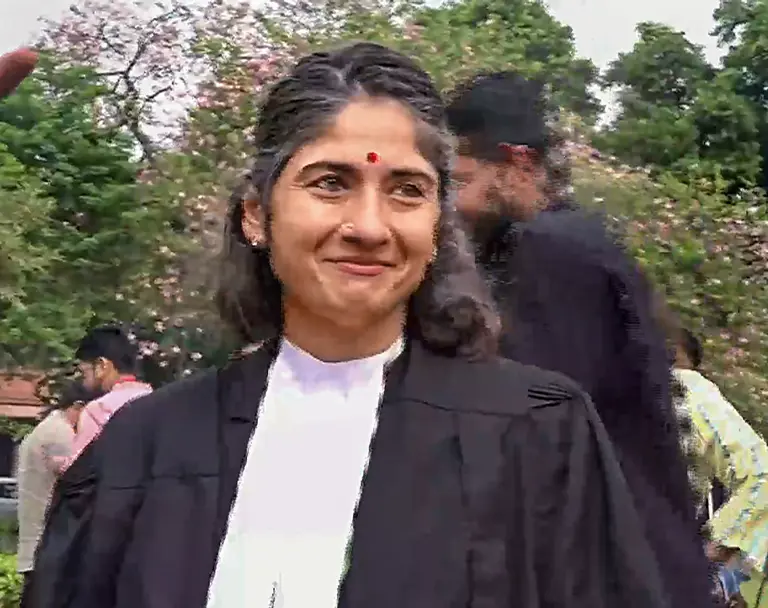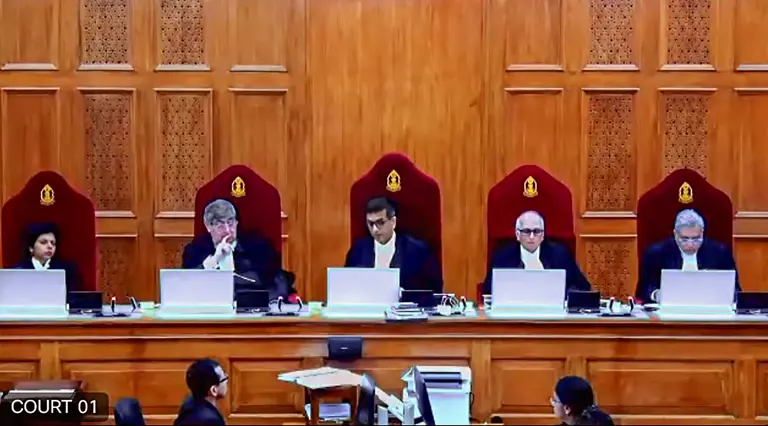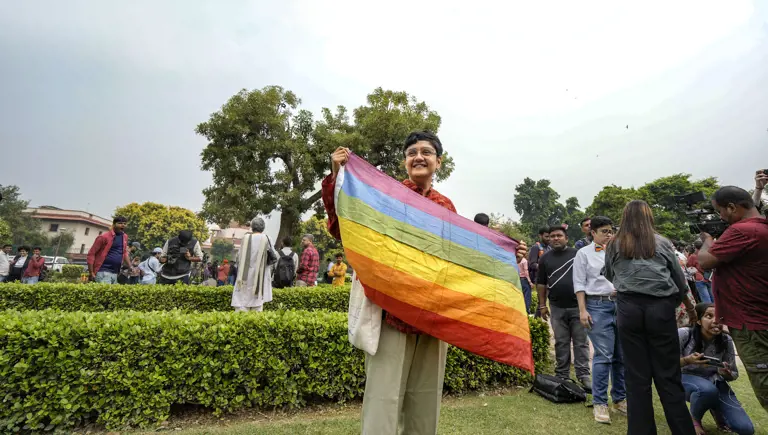Activists, petitioners call for legislative action in same-sex marriage matter after SC ruling

Activists, petitioners call for legislative action in same-sex marriage matter after SC ruling
Following the Supreme Court’s recent decision to not grant legal recognition to same-sex marriage under the Special Marriage Act, a diverse array of responses has emerged from various sections of the LGBTQ+ community, petitioners, and activists. While some have highlighted the positive aspects of the ruling and advocated for legislative measures, others have expressed disappointment and apprehension.
The unanimous decision of the five-judge constitution bench emphasized the Parliament’s authority to amend the law to validate same-sex unions, indicating the scope for potential legislative changes in the future. Despite the lack of legal recognition for same-sex marriage, the court underscored the importance of ensuring equal rights and protection for individuals within the queer community, while emphasizing the necessity for public awareness and sensitivity to prevent discrimination.
Among those impacted, Pranab, one of the petitioners involved in the case, has emphasized the positive aspects of the Supreme Court’s decision, potentially signaling a nuanced perspective that acknowledges both the limitations and the possibilities for progress within the current legal framework. This multifaceted response from various stakeholders underscores the complexity of the issue and the ongoing efforts to secure equal rights and recognition for the LGBTQ+ community within the legal and societal spheres.
The responses from key figures such as Pranab, Sharif Rangnekar, and Dr. Maeeli underscore the nuanced and varied perspectives within the LGBTQ+ community following the Supreme Court’s recent decision.
Pranab’s focus on the positive aspects of the ruling highlights the significance of the rights granted by the court, such as the ability for his partner to claim his body and access to law enforcement, along with increased safety and healthcare opportunities. He acknowledged the decision’s diplomatic approach, aiming to strike a balance that considers both societal expectations and the rights of the LGBTQ+ community.
In contrast, Sharif Rangnekar’s concerns over the lack of specific timelines for the implementation of the proposed changes reveal the need for clarity and expediency in enacting the rights highlighted by the court. His comments underline the importance of establishing clear directives and concrete steps towards the effective implementation of the court’s affirmations.
Dr. Maeeli’s expression of sadness and her call for legislative action reflect the deeper sentiment within the LGBTQ+ community, emphasizing the urgent need for comprehensive legislative measures to secure the rights and recognition of same-sex marriages within the framework of a democratic India. These diverse perspectives collectively underscore the ongoing challenges and aspirations within the LGBTQ+ community as they navigate the legal and societal landscape.
The response from Dr. Maeeli reflects an optimistic outlook, with a hopeful anticipation of Parliament addressing the issue as directed by the Supreme Court. This sentiment aligns with the collective aspiration for legislative action to advance the rights and recognition of the LGBTQ+ community in India.
Padmashali’s commendation of the Supreme Court’s verdict emphasizes the pivotal role of the ruling in challenging stereotypical perceptions and promoting a more inclusive understanding of sex, gender, and sexuality. The acknowledgment of India’s progressive development underscores the transformative impact of the judgment on societal attitudes and perceptions.
Arvind Narrain’s endorsement of the judgment emphasizes the importance of considering this issue as a political movement that necessitates active engagement and response, further highlighting the need for a comprehensive approach involving legislative measures and societal discourse.
Poonam Muttreja’s observation regarding the disparities in the ruling underscores the urgency for more inclusive legal recognition for same-sex couples, emphasizing the imperative for the government to establish a committee to examine the rights and entitlements of queer couples and ensure equitable treatment and justice.
Shubhankar Chakravorty’s reflection on the historical journey of the LGBTQ+ community in India signifies the significance of the recent ruling in contextualizing the pursuit of marriage equality and fostering a broader movement aimed at integrating LGBTQ+ lives and relationships into the fabric of mainstream society. His optimistic outlook underscores the potential for the judgment to drive long-term societal progress and inclusivity.







